| |||||
| Decades: | |||||
|---|---|---|---|---|---|
| See also: | Other events of 2001 | ||||
Events from the year 2001 in Yugoslavia .
| |||||
| Decades: | |||||
|---|---|---|---|---|---|
| See also: | Other events of 2001 | ||||
Events from the year 2001 in Yugoslavia .

Serbia and Montenegro, known until 2003 as the Federal Republic of Yugoslavia, FR Yugoslavia or simply Yugoslavia, was a country in Southeast Europe located in the Balkans that existed from 1992 to 2006, following the breakup of the Socialist Federal Republic of Yugoslavia. The country bordered Hungary to the north, Romania to the northeast, Bulgaria to the southeast, North Macedonia to the south, Croatia and Bosnia and Herzegovina to the west, and Albania to the southwest. The state was founded on 27 April 1992 as a federation comprising the Republic of Serbia and the Republic of Montenegro. In February 2003, it was transformed from a federal republic to a political union until Montenegro seceded from the union in June 2006, leading to the full independence of both Serbia and Montenegro.
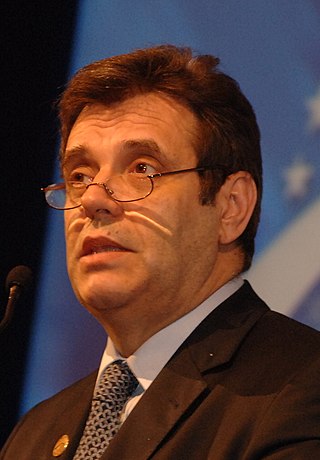
Vojislav Koštunica is a Serbian former politician who served as the last president of FR Yugoslavia from 2000 to 2003 and as the prime minister of Serbia from 2004 to 2008.

Milan Babić was a Croatian Serb politician and war criminal who served as the first president of the Republic of Serbian Krajina, a self-proclaimed state largely populated by Serbs of Croatia that wished to break away from Croatia during the Croatian War of Independence.

Ivica Dačić is a Serbian politician serving as first deputy prime minister of Serbia and minister of foreign affairs since 2022, roles which he previously served under governments of Mirko Cvetković, Aleksandar Vučić, and Ana Brnabić. He has been the leader of the Socialist Party of Serbia (SPS) since 2006.
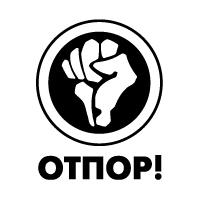
Otpor was a political organization in Serbia from 1998 until 2004.
The Serbian Liberal Party was a classical-liberal, nationalist and monarchist political party in Serbia.

Ivan Stambolić was a Serbian politician. He was a prominent member of the League of Communists of Serbia and also served as the President of the Presidency of Serbia in the 1980s.

The overthrow of Slobodan Milošević in Belgrade, Yugoslavia, began after the presidential election on 24 September 2000 and culminated in the downfall of Slobodan Milošević's government on 5 October 2000. It is sometimes referred to as the 5 October Overthrow and sometimes colloquially called the Bager revolucija, after one of the most memorable episodes from the day-long protest in which a heavy equipment operator charged the Radio Television of Serbia building, considered to be symbolic of the Milošević regime's propaganda.

The League of Communists of Serbia, founded as the Communist Party of Serbia in 1945, was the Serbian branch of the League of Communists of Yugoslavia, the sole legal party of Yugoslavia from 1945 to 1990. It changed its name from KPS to SKS in 1952. Under a new constitution ratified in 1974, greater power was devolved to the various republic level branches. In the late 1980s, the party was taken over by a faction endorsing Slobodan Milošević to become leader of the party. Milošević appeased nationalists in Serbia by promising to reduce the level of autonomy within the autonomous provinces of Kosovo and Vojvodina. This policy increased ethnic tensions with the other republics and nationalities. During the early 1990s, the growing ethnic tensions between the republics of Yugoslavia led to the breakup of the federal party.
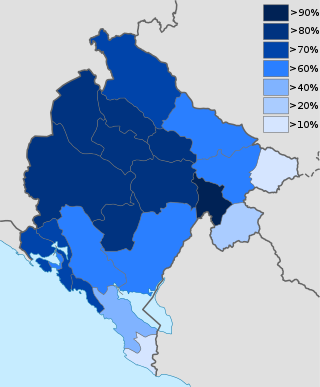
The 1992 Montenegrin independence referendum was the first referendum regarding Montenegrin independence, held on 1 March 1992 in SR Montenegro, a constituent republic of the Socialist Federal Republic of Yugoslavia.

Zoran Žižić was a Yugoslav and Montenegrin politician. He served as Deputy Prime Minister of Montenegro in the first two Đukanović cabinets from 1991 to 1996, and was the first Prime Minister of the Federal Republic of Yugoslavia following the overthrow of Slobodan Milošević in 2000.
The following lists events that happened during 2000 in the Federal Republic of Yugoslavia.
On 25 March 1991, the presidents of the Yugoslav federal states SR Croatia and SR Serbia, Franjo Tuđman and Slobodan Milošević, met at the Karađorđevo hunting ground in northwest Serbia. The publicized topic of their discussion was the ongoing Yugoslav crisis. Three days later all the presidents of the six Yugoslav republics met in Split. Although news of the meeting taking place was widely publicized in the Yugoslav media at the time, the meeting was overshadowed by the crisis in progress, that would lead to the breakup of Yugoslavia.

The Republic of Serbia was a constituent state of the Federal Republic of Yugoslavia between 1992 and 2003 and the State Union of Serbia and Montenegro from 2003 to 2006. With Montenegro's secession from the union with Serbia in June 2006, both became sovereign states in their own right for the first time in nearly 88 years.
Sejdo Bajramović was a Yugoslav soldier and politician of the former Yugoslavia, who was the acting head of state of Yugoslavia for a brief time in 1991.

Slobodan Milošević was a Serbian and Yugoslav politician who was the president of Serbia from 1989 to 1997 and president of the Federal Republic of Yugoslavia from 1997 to 2000. Formerly a high-ranking member of the League of Communists of Serbia (SKS) during the 1980s, he led the Socialist Party of Serbia from its foundation in 1990 until his death in 2006.
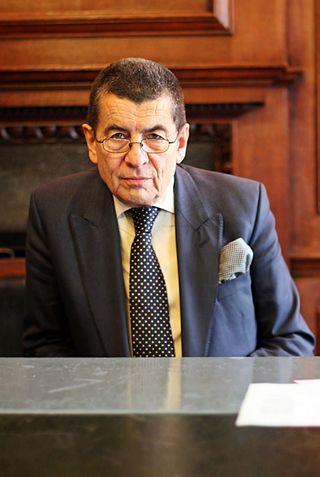
Sir Geoffrey Nice KC is a British barrister and judge. He took part in the International Criminal Tribunal for the Former Yugoslavia and was lead prosecutor at Slobodan Milošević's trial. He is chair of the China Tribunal and the Uyghur Tribunal, which have investigated human rights abuses in China.

The war crimes trial of Slobodan Milošević, the former President of the Federal Republic of Yugoslavia, at the International Criminal Tribunal for the former Yugoslavia (ICTY) lasted for just over four years from 2002 until his death in 2006. Milošević faced 66 counts of crimes against humanity, genocide, and war crimes committed during the Yugoslav Wars of the 1990s. He pleaded not guilty to all the charges.
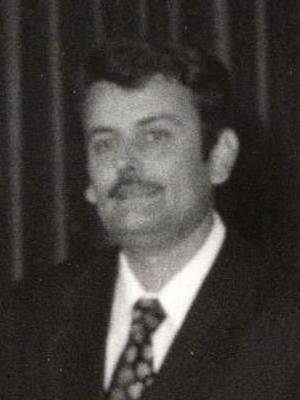
Borislav Milošević was a Yugoslav diplomat who last served as Yugoslav ambassador to Algeria, Japan and Russia. He was the elder brother of former Yugoslav and Serbian president Slobodan Milošević.
Marko Milošević is the son of Slobodan Milošević, the deceased former president of Serbia and president of the Federal Republic of Yugoslavia. He was allegedly involved in organized crime in Serbia during the Yugoslav Wars until he fled the country following his father's removal from power on 5 October 2000. Milošević was later granted refugee status by Russia, and is likely living in Moscow with his wife Milica Gajić and son Marko.